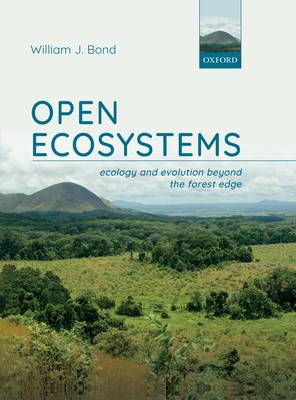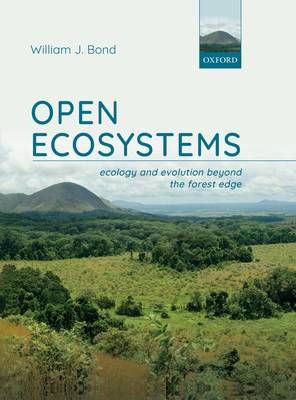
Bedankt voor het vertrouwen het afgelopen jaar! Om jou te bedanken bieden we GRATIS verzending (in België) aan op alles gedurende de hele maand januari.
- Afhalen na 1 uur in een winkel met voorraad
- In januari gratis thuislevering in België
- Ruim aanbod met 7 miljoen producten
Bedankt voor het vertrouwen het afgelopen jaar! Om jou te bedanken bieden we GRATIS verzending (in België) aan op alles gedurende de hele maand januari.
- Afhalen na 1 uur in een winkel met voorraad
- In januari gratis thuislevering in België
- Ruim aanbod met 7 miljoen producten
Zoeken
€ 177,45
+ 354 punten
Omschrijving
This book explores the geography, ecology, and antiquity of 'open ecosystems', which include grasslands, savannas, and shrublands. They occur in climates that can support closed forest ecosystems and often form mosaics with forest patches. With the aid of remote sensing, it is now clear that open ecosystems are a global phenomenon and occur over vast areas in climates that could also support forests. This book goes beyond regional narratives and seeks general explanations for their existence. It develops the theme of open ecosystems as being widespread and ancient, with a distinct biota from that of closed forests. It examines hypotheses for their maintenance in climate zones favouring the development of forests, including fire, vertebrate herbivory, and soils hostile for tree growth. Open Ecosystems: ecology and evolution beyond the forest edge provides an accessible introduction for graduate students and researchers of open (non-forested) ecosystem ecology in departments of ecology, geography, and environmental science. It will also be of relevance and use to professional ecologists, biogeographers, and global change biologists requiring a concise, authoritative overview of the topic.
Specificaties
Betrokkenen
- Auteur(s):
- Uitgeverij:
Inhoud
- Aantal bladzijden:
- 192
- Taal:
- Engels
Eigenschappen
- Productcode (EAN):
- 9780198812456
- Verschijningsdatum:
- 21/10/2019
- Uitvoering:
- Hardcover
- Formaat:
- Genaaid
- Afmetingen:
- 188 mm x 249 mm
- Gewicht:
- 635 g

Alleen bij Standaard Boekhandel
+ 354 punten op je klantenkaart van Standaard Boekhandel
Beoordelingen
We publiceren alleen reviews die voldoen aan de voorwaarden voor reviews. Bekijk onze voorwaarden voor reviews.









